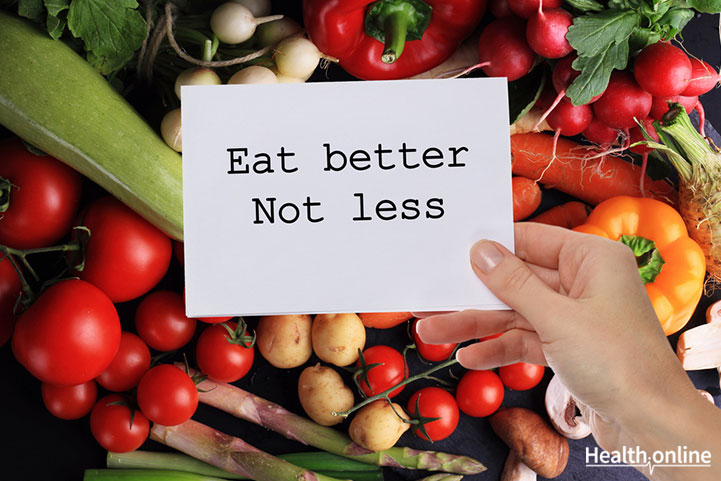
10 Food Mistakes Made While Dieting
Regardless of whether you’re watching your diet for health reasons or for weight loss, you might be finding that things aren’t going exactly as planned. Maybe you’re in a war with the scales and they refuse to budge. Maybe you’re in a slump and feeling low on energy.
Whatever your struggle, it’s worth being aware of these 10 common food mistakes people often make while dieting — so you can smash through your weight loss plateaus and go through your days feeling energized and healthy.
Top 10 Dieting Mistakes
You’re eating “diet” foods
It’s an easy trap to fall into: you’re in the supermarket aisles and you spot a whole bunch of foods labeled “low-fat” and “diet”, and you assume they must be good for you. But check again, because a lot of these are heavily processed and really just junk food in disguise. “Diet” sodas are usually laden with chemical sweeteners, while many foods labeled “fat-free” have added sugar to compensate for their lack of flavor. Your best bet is always to go for real foods — i.e., the less processed the better. It’s a trap to buy something just because it’s been labeled as a “diet” product.
You’re not eating enough protein
Protein is one of the key macronutrients in a healthy diet. Eat too little of it, and there’s a chance your body could become deficient in the amino acids it needs to build and repair muscle and body tissue. Including quality protein in your meals helps to maintain muscle mass even as you lose fat. It can also keep you fuller for longer and increase your metabolic rate.
You’re avoiding fats
Somewhere along the line, fat got a bad rep and people started pushing low-fat diets as the best option. We now know that this is not only false but that healthy fats — in particular, unsaturated fats like those found in olive oil, avocado, nuts, seeds, and fish — are imperative to health. Rather than avoiding all fats, be sure to include the good ones in your diet in moderation. They’re a great source of energy, help you to absorb certain nutrients, and support healthy brain and heart function.
You’re not eating enough fiber
Fiber reduces the glycemic index of a meal. It aids digestion and regulates bowel activity, binds to toxins to help remove them from the body, and makes us feel full and satiated when we eat it. Ensure you’re eating enough high-fiber fruits and vegetables and whole grains, and you’ll notice a difference in your diet’s success.
You’re missing out on key nutrients
While ditching the processed foods, refined sugars and trans-fats may be a good idea, it’s also worth focusing on what you’re getting in as much as what you’re cutting out. If you’re cutting out entire food groups, you may miss out on essential nutrients. For example, if you cut out all animal products, you may need to supplement your iron and B12 intake. If you’re not eating enough fruits and vegetables, you may miss essential vitamins and minerals. Try and eat a whole range of healthful foods to ensure your nutrient intake is covered.
You’re skipping meals
If you want to lose weight, you just have to eat less, right? On the whole, it may seem simple, but eating less doesn’t mean you should starve. If you skip meals altogether when you’re already feeling hungry, it can result in plummeting blood sugar levels. Let your blood sugar get too low, and you can end up overeating or making bad food choices later on. Listen to your body, and if you feel it’s time for a meal, don’t skip it.
You’re drinking the wrong drinks
We’d all like to imagine that if something is in liquid form, it doesn’t count. But sadly those margaritas stack up the calories before you know it! If you’re watching what you eat, you also have to watch what you drink. Fruit juices and sodas are high in sugars and calories, beer and cocktails can sabotage your diet efforts, and that Starbucks caramel frappuccino definitely doesn’t come with a free pass.
You’re not properly reading the labels
Food labels can be confusing. If you’re not taking the time to read them properly, you may be consuming more calories or more unhealthy ingredients than you realize. Always be sure to check the serving sizes and serves per package when reading nutritional information, as this gives you a better idea of how many calories, carbs, and grams of protein, you’re actually consuming.
You’re eating too much of a good thing
So peanut butter is filled with protein and healthy fats, you say? In that case, allow me to eat an entire jar with a spoon! If that sounds like you, then perhaps you’re getting too much of a good thing. Just because a food is healthy, doesn’t necessarily mean you can eat an infinite amount of it without consequence. Remember those good things need to be taken in moderation, too.
You’re eating out too often
Restaurant meals can be healthy and full of goodness; but they can also be laden with hidden calories, sweeteners or bad fats. While going out to eat is part of a balanced lifestyle, you should try to prepare your meals at home as much as possible. This way, you know exactly what’s going into your meals.




